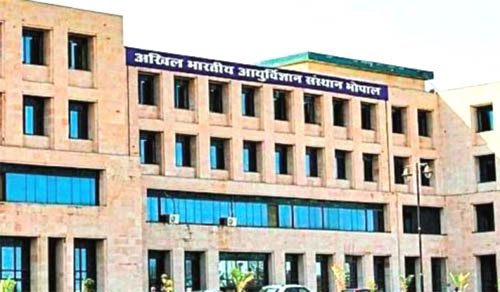New Delhi, Mar 27 (UNI) The Supreme Court on Thursday ordered a joint inspection of Indraprastha Apollo Hospital’s records following allegations that it has failed to provide free treatment to poor patients, as mandated under the government land lease agreement.
The Court has directed the Union of India and Delhi government to conduct a thorough review and submit a report detailing the number of economically weaker section (EWS) patients treated at the hospital over the past five years.
A bench comprising Justice Surya Kant and Justice N Kotiswar Singh issued the directive, outlining the scope of the inspection and seeking specific information, including, Whether the hospital’s lease deed has been renewed after expiry and, if so, under what terms and conditions.
The Bench further questioned that if the lease has not been extended, what legal measures have been taken to reclaim the government-owned land.
The Court directed that a team of experts should be sent to verify the total bed strength and assess outpatient footfall records for at least the past five years.
The Apex Court asked to furnish details on the number of poor patients provided indoor and outdoor treatment, based on recommendations from state authorities, over the past five years.
The Court also instructed the hospital to fully cooperate with the inquiry and allowed its management to submit a status report addressing the aforementioned issues.
The dispute dates back to 1994 when a 15-acre land parcel in Sarita Vihar, Delhi, was leased to Indraprastha Medical Corporation Ltd. at a nominal rate of Rs.1 per month. The Delhi government held a 26% stake in the project. The lease agreement required the hospital to provide free treatment to 1/3rd of indoor patients and 40% of outdoor patients from the economically weaker sections.
However, allegations arose that the hospital failed to comply with these obligations, prompting the All India Lawyers Union (Delhi Unit) to file a Public Interest Litigation (PIL) before the Delhi High Court. In 2009, the High Court ruled that the hospital was not fulfilling its obligations and issued directions to ensure free healthcare services for the poor.
The hospital management, claiming it operated as a commercial entity, challenged the High Court order before the Supreme Court.
Despite the Supreme Court’s directions in 2009 to enforce compliance, concerns persist that the free treatment mandate has not been met.
Noting that the hospital’s 30-year lease from 1994 has now expired, the Supreme Court has taken fresh steps to assess compliance and potential legal consequences.
During the hearing, the bench strongly reprimanded the hospital management, warning that if it continued to evade its lease obligations, the hospital’s administration could be transferred to the All India Institute of Medical Sciences (AIIMS).
The Court expressed concern that a hospital meant to function on a no-profit, no-loss model had instead become a commercial venture, effectively denying access to underprivileged patients.
Additionally, when the hospital’s counsel pointed out that the Delhi government, as a 26% shareholder, also profited from the hospital’s revenue, Justice Surya Kant remarked that such a situation was “most unfortunate.”
The matter is now pending further review based on the inspection report to be submitted by the Delhi government and the Union of India.











